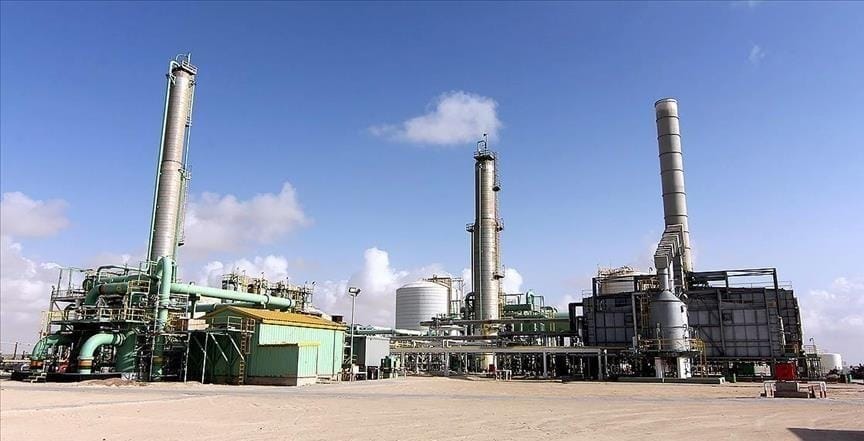Oil Shutdowns and Central Bank Crisis Push Libya Towards Renewed Instability
Libya’s oil production faces severe disruption as a deepening power struggle over the control of the country’s central bank threatens to plunge the nation into further chaos.
Libya’s oil production faces severe disruption as a deepening power struggle over the control of the country’s central bank threatens to plunge the North African nation into further chaos. The Sarir oil field, one of Libya's largest, has nearly halted its output of 209,000 barrels per day, following a wave of shutdowns at major oil fields across the country. This latest move underscores the escalating conflict between rival factions vying for control over Libya's vast oil revenues, crucial to its economy and political landscape.
Political Fallout and Oil Shutdowns
The recent disruptions come amid political fallout over the leadership of the Central Bank of Libya, with tensions reaching a boiling point following the kidnapping of the bank’s IT head, Musab Msallem, on August 18. Although Msallem was released the same day, the incident has amplified the rift between the eastern-based Libyan National Army (LNA) and the Tripoli-based Government of National Accord (GNA). Eastern authorities, aligned with Field Marshall Khalifa Haftar, have since halted production and exports from the country’s main oil fields, demanding the reinstatement of the long-serving central bank governor, Sadiq al-Kabir, who was dismissed by the Tripoli administration earlier this month.
Libya, Africa’s largest crude producer with an estimated 50 billion barrels in reserves, typically pumps around 1.2 million barrels of oil per day. However, production is heavily concentrated in the eastern regions controlled by the LNA, while revenues are managed by the Tripoli-based central bank. This has long been a source of tension, with various factions using oil shutdowns as a bargaining chip in their pursuit of greater political power and financial control.
Central Bank Crisis: A Catalyst for Instability
The central bank, a linchpin in Libya’s fractured economy, has been the epicenter of the latest conflict. Governor Sadiq al-Kabir, who has led the bank since the fall of Muammar Gaddafi in 2011, has recently clashed with the GNA over what he describes as excessive spending by the Tripoli government, which he claims is undermining the country's financial stability. In response, the GNA replaced al-Kabir, a move rejected by Haftar’s LNA and the eastern House of Representatives, who argue that al-Kabir's leadership is critical for maintaining economic stability.
The Tripoli-based administration, led by Prime Minister Abdul Hamid Dbeibah, has defended its decision, stating that the dismissal of al-Kabir was within its constitutional rights and aimed at enhancing governance within the bank. However, the decision has further polarized the nation, with armed factions mobilizing in the northwest in response to the growing crisis.
Economic and Diplomatic Repercussions
The oil shutdowns, estimated to have reduced Libya's output by 900,000 to 1 million barrels per day, pose a significant threat not only to the national economy but also to the global oil market, as Libya is a key member of OPEC. The disruptions have led to fears of increased volatility in global oil prices, given the nation's role as a major supplier.
The U.S. Embassy in Libya has called for diplomatic intervention, urging all parties to de-escalate tensions and engage in dialogue. U.S. special envoy Richard Norland highlighted that the contest over the central bank undermines confidence in Libya’s economic and financial stability, both domestically and internationally, and increases the risk of conflict. The embassy’s plea for talks aligns with efforts by the United Nations to convene an emergency meeting to address the crisis, though there has been little indication that rival factions are willing to back down.
Future Uncertain as Libya Remains Divided
Libya's ongoing political and economic turmoil is part of a broader, decade-long struggle for control over the country’s vast resources. Since the NATO-backed overthrow of Gaddafi, Libya has remained divided between eastern and western factions, with both sides drawing support from foreign powers, including Turkey and Russia. Despite a fragile ceasefire in place since 2020, the rivalry continues to hinder efforts to stabilize the country and move towards national elections.
As the power struggle over the central bank intensifies, Libya’s path to peace and economic stability appears increasingly uncertain. The rival factions’ intransigence over the control of oil revenues and key state institutions reflects a deeper crisis within the Libyan political elite—a crisis that can only be resolved through sustained diplomatic efforts and a genuine commitment to rebuilding the nation’s fractured institutions.
With the fate of the central bank and control over Libya’s oil wealth hanging in the balance, the nation stands at a critical crossroads. The coming weeks will be pivotal in determining whether Libya can navigate through this latest bout of instability or if it will descend further into conflict, risking not only its own future but also contributing to broader regional volatility.






